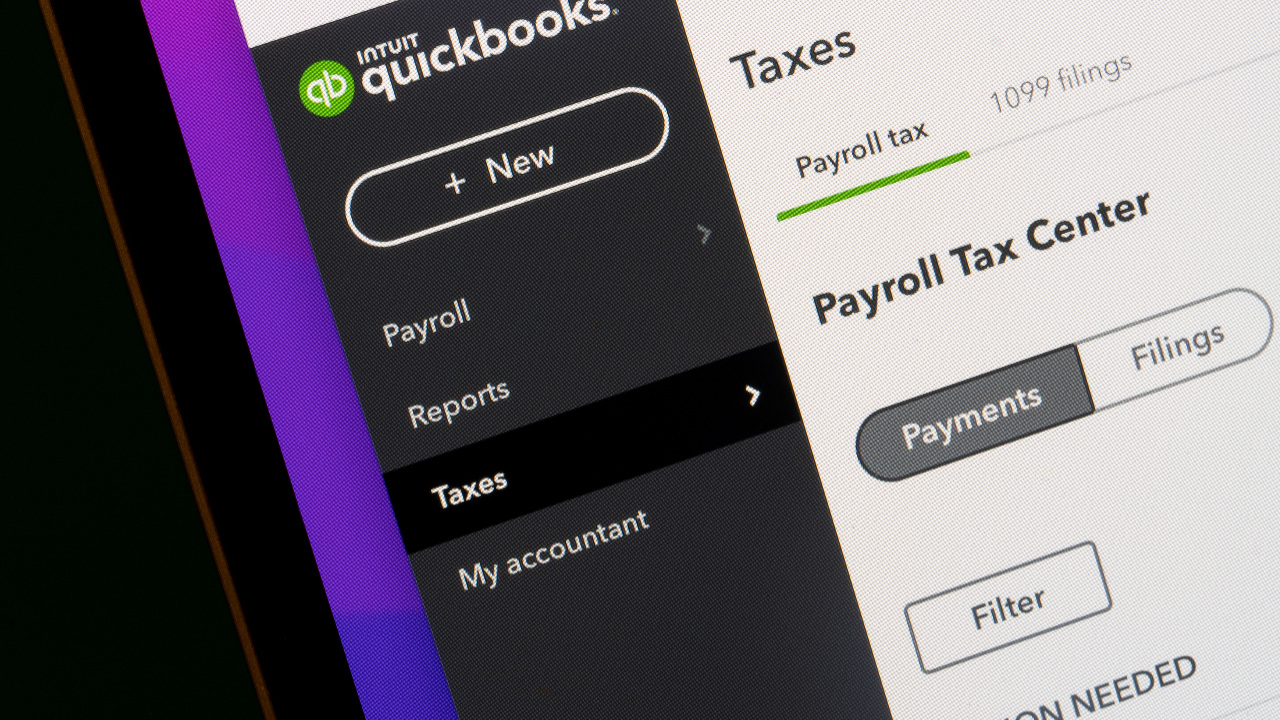8 Recession Resistant Jobs to Consider as Your New Career

One of the worst financial worries you can have is wondering if you are going to get hit with a pink slip when you are working for a company that is trying to cut its budget back tighter than a college student living on ramen noodles.
Unfortunately, recessions can cause some of the largest companies in the world to lay off employees due to economic downturns. These past few years have been devastating as far as job losses go. In fact, according to MarketWatch, 386,000 jobs have been cut so far this year. That’s a nerve-racking statistic to see.
While there is always a chance of being laid off, there are careers that are more recession-resistant than others, which is why you should consider switching to a field that offers a bit more job security.
So, we rounded up the most recession-proof jobs and how much they pay to help you find a career that can carry you through the economic trenches.
8 Lucrative Recession-Resistant Jobs to Consider

These careers can be an excellent choice if you are searching for a job that can withstand an unstable economy. Let’s dive into which jobs rank highest when it comes to stability and the potential earnings of each.
Bookkeeper

If you are meticulous at keeping up with your finances and records, then becoming a bookkeeper may be the best job for you. A bookkeeper records financial transactions, prepares financial reports, and manages things like payroll and cash flow. If you become a full-charge bookkeeper, you even prepare tax documents.
According to ZipRecruiter, the average salary for an entry-level bookkeeper is around $24 an hour. However, a full-charge bookkeeper averages about $26 an hour but can earn up to $81,297. The amount you will make depends on your experience and location.
Now, there is also the option of becoming a freelance bookkeeper and starting your own business. You can start it as a side hustle and build it into a full-time job once you obtain enough clients. Of course, you need to remember that, like with most businesses, there are start-up costs to consider.
So, you may want to work for an employer first, then branch out on your own once you gain experience.
Education and training required to become a bookkeeper

The best thing about becoming a bookkeeper is that you don’t have to obtain a college degree to start this career. However, some employers do prefer an associate’s or bachelor’s degree in accounting.
The basic education you will need to have is a high school diploma or GED and some postsecondary education, such as beginner bookkeeping courses. It’s vital to know about various accounting software programs such as Quickbooks, which these types of courses can include.
If you want to increase your knowledge and salary, then you should consider certification to become a full-charge bookkeeper. To become a certified bookkeeper, some programs require that you have worked a specified amount of hours to be eligible and pass the exams to obtain certification.
The National Association of Certified Public Bookkeepers and the American Institute of Professional Bookkeepers are among the best places to attain certification. Getting certified will help you have more job opportunities and give you the potential to request higher compensation.
Accountant

If you are known for accuracy and problem-solving skills, becoming an accountant is another recession-resistant job you can consider. An accountant is responsible for more complex aspects of a business, such as creating financial statements, preparing tax returns, and providing financial analysis to help the company make informed business decisions.
According to Salary.com, the average annual salary for an accountant is $63,191 but can range between $57,570 and $69,500. You can increase your compensation by mastering various skills such as coordination, leadership, and collaboration skills.
Education and training required to become an accountant

In most states, you will need to attain a bachelor’s degree in accounting and pass the Uniform Certified Public Accountant Exam to become a certified public accountant. The amount of semester hours required for the test depends on which state you reside in. Typically, you must complete 150 semester hours specified in the Uniform Accountancy Act required for licensure, but some jurisdictions require less.
However, there are some accounting jobs you can attain without a degree or while you attend school, such as being an accounting assistant, payroll administrator, or bookkeeper. That way, you can get a job in the same field as accounting and earn money while you attend school.
Pharmacy technician

Unfortunately, one thing that people will still have to have during a recession is medication, which is why the pharmaceutical industry is considered to be one of the more recession-proof industries.
The only good thing about that is pharmacy technicians will remain in demand for years to come. In fact, according to the U.S. Bureau of Labor Statistics, pharmacy technician jobs are projected to grow 7% by 2033—which is faster than the average for all occupations.
According to All Allied Health Schools, the median salary for a pharmacy tech is $40,300 a year. However, many factors can influence your salary, such as location, place of employment, education, and experience.
Education and training required to become a pharmacy tech

The great news is that you don’t need a four-year degree to become a pharmacy tech. However, you do need to have a high school diploma or GED and graduate from an accredited pharmacy tech program.
Depending on your state, you may also be required to get certified by national and regional bodies. You can check the National Association of Boards Pharmacy to see what your state’s requirements are.
The Pharmacy Technician Certification Board and National Healthcareer Association are the organizations where you can attain a pharmacy technician certification if your state does require it.
Law enforcement

You’ve probably heard that crime doesn’t pay, but being in law enforcement can. According to the U.S. Bureau of Labor Statistics, the median salary for police officers and detectives is $74,910 annually.
These fields are projected to grow by 4% from now until 2033. Your job duties will vary depending on which career you pick. To simplify it a bit, police officers’ duties are to protect people and their property, and detectives and investigators collect evidence for various crimes.
These jobs are physically and mentally demanding and also extremely dangerous. So, keep that in mind when deciding if it’s the right choice for you.
Education and training required to get into law enforcement

The education required depends on the type of job and state and federal requirements. For example, some agencies may require a college degree in criminal justice or a related field in addition to training. Typically, you will need to have a high school diploma or GED, be 18 to 21 years of age, have a clean background, graduate from a police academy, complete field training, and pass a law enforcement exam.
The average time to complete police academy training is around five months, but it can be longer depending on the state’s requirements. As far as becoming a police detective, most of them start their careers as officers and get promoted to detectives after gaining adequate experience.
However, this may be an excellent career choice for those seeking decent retirement benefits because law enforcement is one of the few jobs left that offer pension plans for their employees.
Funeral director

There’s a morbid saying that the only things for certain are death and taxes. That’s why the funeral trade is considered to be a recession-resistant industry. The U.S. Bureau of Labor Statistics projects a 4% job growth from now until 2033. Funeral directors manage all the aspects of handling the funeral ceremony of the deceased.
According to Indeed, the median salary for a funeral director is $64,973, but can be as high as
$97,896. The pay is decent, but many work irregular hours, such as evenings and weekends, and can even be on call. Plus, it can be an emotionally and physically tolling job. So, consider if the money outweighs the type of work you will be doing.
Education and training required to become a funeral director

The first step toward becoming a funeral director is getting an associate’s degree in mortuary science or funeral service from a school accredited by the American Board of Funeral Service Education. You also need to complete an apprenticeship and pass a state licensing exam.
Some states require continuing education to keep your license. It’s a bit of a process, to say the least, but it is a career that offers benefits, high compensation, and job stability.
Auto mechanic

During times of financial strain, people tend to opt to have their vehicles repaired rather than buy new ones. Since cars need maintenance and repairs, there is a need for auto mechanics even during a recession. Mechanics not only diagnose and fix your car, but they also perform routine maintenance such as oil changes, rotating tires, and checking fluid levels when needed.
Indeed reports that the average base salary for an auto mechanic in the United States is $26.98 per hour, but can range between $16.28 and $44.71 an hour. Some factors that affect salary amount are location, training, and industry. For example, certified mechanics specializing in high-demand areas and vehicles can earn a higher wage. Depending on the employer, you can receive an array of benefits too.
Education and training requirements to become an auto mechanic

Similar to other trades, the required training can depend on the company and state. There are a few routes to take to get your foot in the door to become a mechanic. If you have a GED or high school diploma, you can enroll in an automotive training program at an accredited trade school.
The length of time to complete the required courses depends on the type of program you choose. For example, there are certification programs that can be completed within a year, but associate degree programs can take two years, and a bachelor’s degree in automotive technology can take four years.
Employers also prefer to hire mechanics with an ASE certification to demonstrate their skills and knowledge as a mechanic. If you are the entrepreneurial type, you can open your own auto repair shop once you receive training and certification. But, you will need to attain the proper business licenses, permits, insurance, and equipment to get started.
Legal assistant/Paralegal

If you are a professional multitasker, organized, and have superb writing skills, you may make a fantastic legal assistant. A paralegal assists lawyers with various administrative tasks such as drafting documents, interviewing clients, reviewing transcripts, and researching laws and regulations related to the case.
According to Indeed, the average salary for a paralegal is $60,532 per year, but it can range between $40,069 and $91,445. Pay varies depending on factors such as location, experience, and specialization. For example, those who work in higher-demand areas such as corporate law will earn a higher wage. But, if you pick a career path that interests you it will make your work more enjoyable.
Education and training required to become a paralegal

Like being a lawyer, the requirements to become a paralegal vary by state. So, make sure to research your state before deciding which type of education program you participate in.
The fastest way to get a job as a paralegal is to enroll in a certificate program. This usually takes about a year to complete. However, some employers may prefer an associate’s degree in paralegal work.
There are also bachelor’s and master’s degree programs in the field, but you can still land a job with a certificate or associate’s degree. Once you gain experience, you may also be able to attain other types of paralegal certifications to advance your skills and knowledge.
Registered nurse

Did you know that during the Great Recession, nursing employment and wages increased? Not only that, the U.S. Bureau of Labor Statistics predicts a 6% increase in job growth from 2023 to 2033, which is faster than the average for all other occupations. So, if you are the nurturing type with a willingness to learn, then you may want to consider becoming a registered nurse.
There are all sorts of opportunities as far as where you can work. Nurses are employed by hospitals, clinics, schools, and physicians offices.
According to ZipRecruiter, registered nurses’ salary range varies by state and runs between $56,707 and $91,445. Of course, other factors come into play regarding pay, such as experience, work setting, and education.
Education and training required to become a registered nurse

It’s no surprise that you need extensive training and education to be a nurse. After all, they are responsible for caring for various types of patients. Some states require a bachelor of science degree in nursing, while others may only require an associate’s degree.
After completing a degree program, you must complete the National Council Licensure Examination to become a licensed nurse. Becoming a registered nurse can take anywhere from 16 months to four years.
If you want to advance your career and get into leadership positions, then you will need a Master of Science Nursing Degree. So, how much education you will need will depend on your professional goals.
Recession-Resistant Jobs for Financial Security

While no job is guaranteed, you can increase job security by choosing a profession that is not as volatile as others. The best thing about some of these careers is you can start with the minimum education requirements and then further your training once you get a job in the field.
Remember that a key part of surviving a recession is also diversifying your income and having a solid emergency fund in place. So, work on those things and consider a career that offers more job security to lessen the chance of an unexpected layoff and have financial stability.
Source: MarketWatch.





